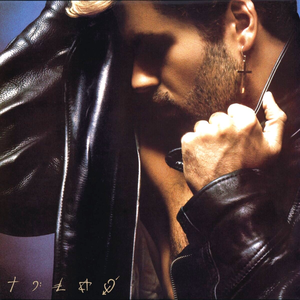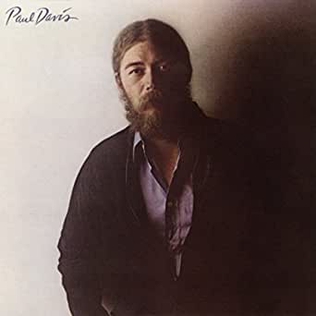Rhythm and blues, frequently abbreviated as R&B or R'n'B, is a genre of popular music that originated in African-American communities in the 1940s. The term was originally used by record companies to describe recordings marketed predominantly to urban African Americans, at a time when "urbane, rocking, jazz based music ... [with a] heavy, insistent beat" was becoming more popular. In the commercial rhythm and blues music typical of the 1950s through the 1970s, the bands usually consisted of a piano, one or two guitars, bass, drums, one or more saxophones, and sometimes background vocalists. R&B lyrical themes often encapsulate the African-American experience of pain and the quest for freedom and joy, as well as triumphs and failures in terms of relationships, economics, and aspirations.

Barry Eugene Carter, better known by his stage name Barry White, was an American singer and songwriter. A two-time Grammy Award winner known for his bass voice and romantic image, his greatest success came in the 1970s as a solo singer and with The Love Unlimited Orchestra, crafting many enduring soul, funk, and disco songs such as his two biggest hits: "Can't Get Enough of Your Love, Babe" and "You're the First, the Last, My Everything".

Martha and the Vandellas were an American vocal girl group formed in Detroit in 1957. The group achieved fame in the 1960s with Motown.

Gladys Knight & the Pips were an American R&B, soul and funk family music group from Atlanta, Georgia, that remained active on the music charts and performing circuit for over three decades starting from the early 1950s.

Earth, Wind & Fire is an American band whose music spans the genres of jazz, R&B, soul, funk, disco, pop, Latin, and Afro pop. They are among the best-selling bands of all time, with sales of over 90 million records worldwide.

The O'Jays are an American R&B group from Canton, Ohio, formed in 1958 and originally consisting of Eddie Levert, Walter Lee Williams, William Powell, Bobby Massey, and Bill Isles. The O'Jays made their first chart appearance with the minor hit "Lonely Drifter" in 1963, but reached their greatest level of success once Gamble & Huff, a team of producers and songwriters, signed them to their Philadelphia International label in 1972. With Gamble & Huff, the O'Jays emerged at the forefront of Philadelphia soul with "Back Stabbers" (1972), and topped the US Billboard Hot 100 the following year with "Love Train". Several other US R&B hits followed, and the O'Jays were inducted into the Vocal Group Hall of Fame in 2004, The Rock and Roll Hall of Fame in 2005, and the Rhythm and Blues Music Hall of Fame in 2013.

Lady Soul is the twelfth studio album by American singer Aretha Franklin released in early 1968, by Atlantic Records.
Popular music in the 1990s saw the continuation of teen pop and dance-pop trends which had emerged in the 1970s and 1980s. Furthermore, hip hop grew and continued to be highly successful in the decade, with the continuation of the genre's golden age. Aside from rap, reggae, contemporary R&B, and urban music in general remained extremely popular throughout the decade; urban music in the late-1980s and 1990s often blended with styles such as soul, funk, and jazz, resulting in fusion genres such as new jack swing, neo-soul, hip hop soul, and g-funk which were popular.
Blue-eyed soul is rhythm and blues (R&B) and soul music performed by white artists. The term was coined in the mid-1960s, to describe white artists whose sound was similar to that of the predominantly-black Motown and Stax record labels. Though many R&B radio stations in the United States in that period would only play music by black musicians, some began to play music by white acts considered to have "soul feeling"; their music was then described as "blue-eyed soul."

Carla Venita Thomas is an American singer, who is often referred to as the Queen of Memphis Soul. Thomas is best known for her 1960s recordings for Atlantic and Stax including the hits "Gee Whiz " (1960), "B-A-B-Y" (1966) and "Tramp" (1967), a duet with Otis Redding. She is the daughter of Rufus Thomas.
Sue Records was also the name of a Louisiana-based record company which owned Jewel Records.

"Love Child" is a 1968 song released by the Motown label for Diana Ross & the Supremes. The second single and title track from their album Love Child, it became the Supremes' 11th number-one single in the United States, where it sold 500,000 in its first week and 2 million copies by year's end.

Faith is the debut solo studio album by the English singer George Michael, released on 30 October 1987 by Columbia Records and Epic Records. In addition to playing various instruments on the album, Michael wrote and produced every track on the recording except for one, "Look at Your Hands", which he co-wrote with David Austin. A "black" inspired pop-R&B album, Faith's songs include introspective lyrics, which generated controversies about Michael's personal relationships at that time.

The Main Ingredient was an American soul and R&B group best known for their 1972 hit song "Everybody Plays the Fool".

The Intruders are an American soul music group most popular in the 1960s and 1970s. As one of the first groups to have hit songs under the direction of Kenny Gamble and Leon Huff, they were a major influence on the development of Philadelphia soul.

Paul Lavon Davis was an American singer and songwriter, best known for his radio hits and solo career which started worldwide in 1970. His career encompassed soul, country, and pop. His most successful songs are 1977's "I Go Crazy", a No. 7 pop hit which once held the record for the longest chart run on the Billboard Hot 100, and 1982's "'65 Love Affair", which at No. 6 is his highest-charting single. Another pop hit, "Cool Night", was released in 1981. In the mid-1980s, he also had two No. 1 country hits as a guest vocalist on songs by Marie Osmond and Tanya Tucker.

William Larry Stewart II was an American rhythm and blues singer and pianist who was popular during the 1960s.

The Four Tops are an American vocal quartet from Detroit who helped to define the city's Motown sound of the 1960s. The group's repertoire has included soul music, R&B, disco, adult contemporary, doo-wop, jazz, and show tunes.

"The Greatest Love of All" is a song written by Michael Masser, who composed the music, and Linda Creed, who wrote the lyrics. It was originally recorded in 1977 by George Benson, who made the song a substantial hit, peaking at number two on the US Hot Soul Singles chart that year, the first R&B chart top-ten hit for Arista Records. The song was written and recorded to be the main theme of the 1977 film The Greatest, a biopic of the boxer Muhammad Ali, and is performed during the opening credits.
"Long Lonely Nights" is a song that was originally released by Lee Andrews & the Hearts in 1957. Hit versions were also released by Clyde McPhatter, later in 1957, and Bobby Vinton in 1965. The song was written by Lee Andrews, though Larry Brown, Doug Henderson, and Mimi Uniman were given songwriter credit as well, in a practice that was common at the time.














